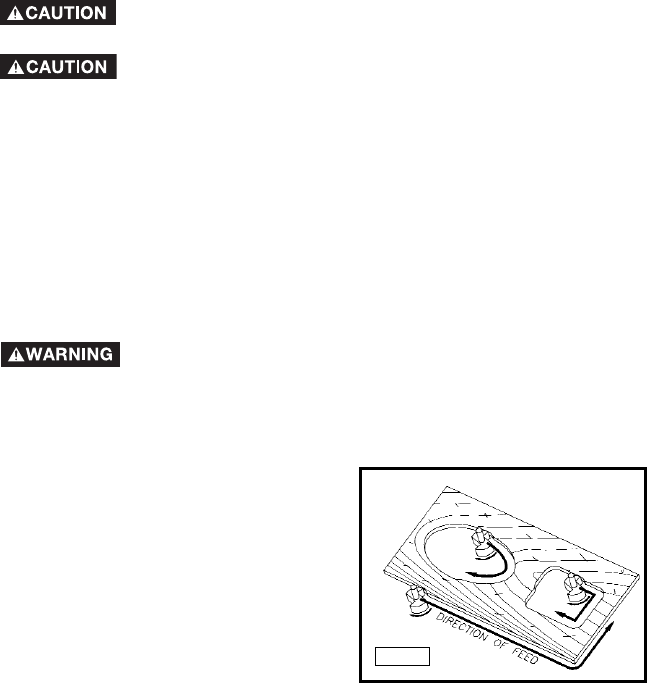
14
Periodically wipe the columns clean with a dry cloth. DO NOT lubricate
columns.
IMPORTANT: Before using your router, consider the kind and total amount of
material to be removed. Depending on the material, it may be necessary to
make more than one cut to avoid overloading the motor. Before beginning the
cut on the actual workpiece, make a sample cut on a piece of scrap lumber.
This will show exactly how the cut will look as well as enable you to check
dimensions.
When through-cutting, be sure the router bit has enough
clearance under workpiece.
Firmly clamp or otherwise secure the workpiece before
making a cut.
Generally speaking, when working on a bench, hold the workpiece on the
bench by wood clamps. When routing edges, hold the router firmly down
and against the work by both handles.
Since the cutter rotates clockwise (when viewing router from top), you can
cut more efficiently if the router is moved from left to right as you stand
facing the work. When working on the inside of a templet, move the router
in a clockwise direction. When working on the outside of a templet, move
the router in a counter-clock-wise direction.
Avoid “Climb-Cutting” (cutting in direction opposite that
shown in Fig. 12). “Climb-Cutting increases the chance for
loss of control resulting in possible personal injury. When
“Climb-Cutting” is required (backing around a corner),
exercise extreme caution to maintain control of router.
The speed and depth of cut will depend
largely on the type of material being
worked upon. Keep the cutting pressure
constant but do not crowd the router so
that the motor speed slows excessively.
More than one pass may be necessary
on exceptionally hard woods or problem
materials to get the desired depth of
cut.
When making cuts on all four edges of the workpiece, make the first cut on
the end of the piece across the grain. Thus, if chipping of wood occurs at
the end of a cut, it can be removed when making the next cut parallel with
the grain.
USING THE TOOL
Fig. 12


















